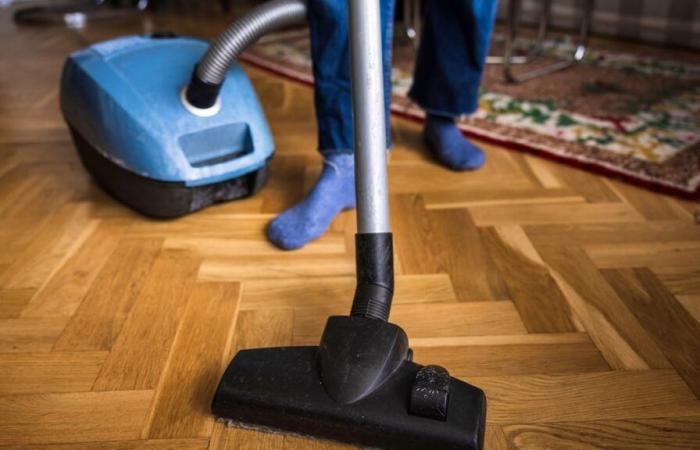The idea of the application, according to its manager, is to transform household chores into rewards.
Getty
Tired of doing the dishes or cooking dinner every day? An application developed in Sweden proposes to “make the invisible visible”, by distributing and counting household chores within the family.
In their opulent house in Täby, a wealthy suburb of Stockholm, Marko and Neha Sarcevic, a married couple aged 40 and 37, employ an au pair for their two children aged three and a half and four and a half.
“We said to ourselves, let’s try, maybe this will solve a lot of our problems at home,” says Neha, who is very busy with her job as a doctor and business manager.
“We wanted to bring back the same structure and organization that we have at work, at home,” adds her husband, who appreciates the “dialogue” born thanks to this app with 2,000 users.
Hanging up the children’s coats, emptying their pool bags, doing the dishes: Neha scrolls through their family’s tasks on her cell phone screen.
“Thoughts all the time”
The principle is simple: each user inserts the service of their choice into the software, accompanied by a schedule by which it must be completed. Others can then follow its progress, and send a “reminder” if it is not completed on time.
Neha loves this feature. “But I don’t use it often,” she said, eliciting a laugh from her husband.
The idea was born a year ago in the mind of a student, Victor Fredrikson, when his father got tired of telling him to clean his room and wash his clothes.
“He knew that I had just started programming at KTH (the Royal Polytechnic of Sweden) and he said to me ‘why not program an application so I don’t have to give you thoughts all the time?’ », Relates the 23-year-old student, today CEO of the Accord application.
The idea, explains the young manager, is to transform household chores into rewards. The app, launched on September 5, allows members to show appreciation to others by sending a heart or thumbs up when the task is completed.
Know who does what
“We want people to be involved in family discussions around household chores, to make invisible work visible, to know who does what in order to help start this discussion,” argues Elias Floreteng, 22, development manager.
According to a UN Women study published in October 2023, women spend 2.8 hours more per day on domestic tasks than men globally.
Sweden is nevertheless a good student and ranked 5th out of 146 in the World Economic Forum’s 2024 report on global gender inequality.
The couple met by AFP can’t wait until their two children are old enough to use it.
“Cleaning your room, one thing, cooking together, another,” lists Marko. Depending on the points collected, pocket money will be calculated.
It is the au pair who does the majority of the child-related work.
“Before, I always had to ask him: have they eaten, have they taken their bath?”, underlines the doctor. “Now my ‘mommy brain’ can breathe,” says Neha, because she can follow everything Christina does on her phone.
Marko goes to the fridge. Tonight, as the app reminds us, he’s the one in charge of dinner. On the menu: steaks, peppers and onions.
(afp)






